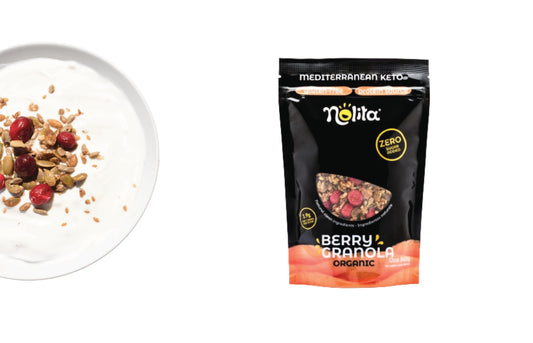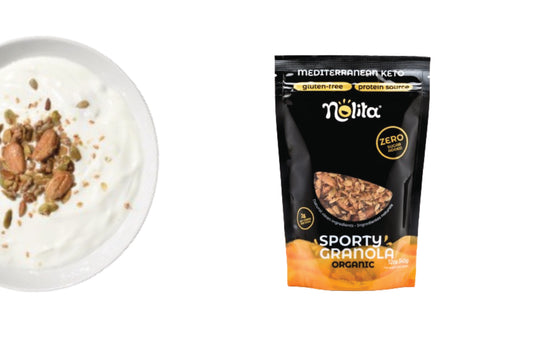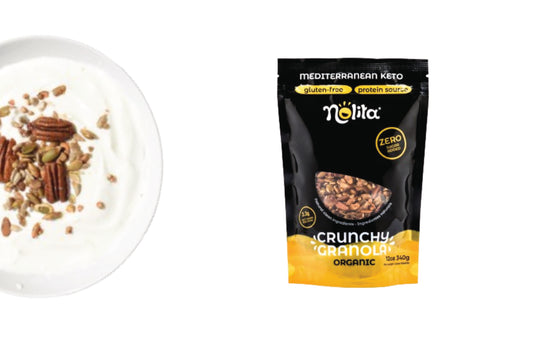Vegetable oils come from natural products such as fruits, seeds, grains, and nuts. Many of these oils can be used in food and are usually healthier than other types of animal fat. Some of the best-known vegetable oils are sunflower oil, coconut oil, corn oil, soybean oil, and olive oil. But are these the best options when cooking?
Avocado oil
Is rich in monounsaturated fatty acids, mainly oleic acid, which can help protect against heart disease, diabetes, cancer, and arthritis
In addition, it is rich in vitamin A which promotes eye health, and phytosterols which can help prevent prostate cancer. This product can be extracted by cooking the pulp, dehydrating the fruit, or peeling the avocado.
Grape seed oil
This product derived from the compression of grape seeds has numerous cosmetic benefits but is also an excellent ally in cooking. Because it can withstand high temperatures without producing carcinogenic substances, it can be used in food in almost any recipe, either in hot or cold dishes.
it is rich in unsaturated fats, this oil can also help regulate cholesterol, prevent hypertension, and strengthen the immune system.
In addition, it is also rich in vitamin E which works as a fat-soluble antioxidant and helps protect cells from harmful free radicals associated with other chronic diseases. Vitamin E also collaborates in the proper functioning of the immune system.
Safflower Oil
A rich source of unsaturated fatty acids, and its use is especially beneficial for hormone regulation and memory. This oil promotes the body's absorption of vitamins A, D, E, and K.
There are two types of Safflower oil: high-oils and high-linoleic. Both contain unsaturated fatty acids, but the former is suitable for cooking at high temperatures and the latter is only suitable for use in salad dressings.
Sunflower oil
It has health benefits because it is low in saturated fat and high in two types of fatty acids, polyunsaturated and monounsaturated. It can be cooked at high temperatures and is especially suitable when substituted for less healthy fats.
Corn oil
Extracted by pressing corn, this fat contains some healthy components such as phytosterols, which have anti-inflammatory properties. However, this product is not generally considered a healthy fat. This is because it is highly refined and usually corn production is loaded with pesticides and chemicals that end up indirectly included in the food.
Peanut oil
There are several ways of obtaining this product with the most common being pressing. This product can also be obtained by soaking in hexane and then distilling. However, this is not the most advisable method, since hexane is a chemical product that can be harmful (in large quantities) to the human body.
It is rich in monounsaturated fat, which makes it suitable for cooking at high temperatures.
It also has antioxidant and anti-inflammatory properties.
Sesame oil
Sesame oil is also rich in antioxidants and anti-inflammatory properties. In addition, some studies also indicate that in the long term it may be beneficial concerning blood sugar control and arthritis.
Soybean oil
It can be extracted by pressing the crushed beans or by using a solvent and then distilling. It is rich in vitamin E, a nutrient that can help promote skin health. Its topical application can protect against inflammation and help the skin retain moisture. It is also composed of vitamin K, which helps maintain bone strength and reduce the risk of fractures. It consists mainly of polyunsaturated fats, which are linked to lower cholesterol levels and a reduced risk of heart disease.
It has a relatively high boiling point, which makes it a good choice for cooking.
This vegetable oil also contains omega-3, which plays a key role in promoting health and preventing chronic diseases.
Products like grapes, sunflower seeds, corn, sesame, soybeans are rich in omega-6 fatty acids which can lower cholesterol when consumed in moderation.
But many of these products like grapes, corn, safflower, sunflower, and soybeans also contain vitamin E which is rich in antioxidants and therefore important for strengthening the immune system and skin health.
So which oil is the healthiest?
The American Heart Association (AHA) recommends that people choose oils that contain less than 4 grams of saturated fat per tablespoon. They also advise people to avoid partially hydrogenated oils and trans fats.
In addition, omega-6 rich products should be consumed in moderation, as too much omega-6 can cause tissue inflammation. The ideal is to maintain the proper balance of omega-6 and omega-3 fatty acids in the body. Most people get enough omega-6 fatty acids in their diet and have a deficit of omega-3. So the key remains to maintain a balanced, rich, and varied diet and consume a variety of healthy fats daily.
You can use all these oils, but corn oil is is the least good option.
Try them out and find out which ones you prefer.
And which oil is best for cooking?
Vegetable oils containing lower levels of linoleic acid, such as olive oil, sunflower oil, soybean, and coconut are best for cooking at high temperatures.
Polyunsaturated oils, such as corn and high-linoleic safflower are best for use in cold salad dressings.
Photo by:@gadgapho
Bibliography:
Sissons, B.,( May 23, 2019). What is the most healthful oil for frying?. Medical News Today. Consulted in 09/05/2021.
Caporuscio, J.,(March 30, 2019). What are the most healthful oils?. Medical News Today. Consulted in 19/05/2021
Leonard, J., (June 25, 2018)., Six health benefits of safflower oil. Medical News Today. Consulted in 19/05/2021
Adcox, M., (July 12, 2017). The health and beauty benefits of grapeseed oil. Medical News Today. Consulted in 19/05/2021
Peng, C., Lan, C., Lin, P., Kuo, Y., (October 20,2016). Effects of cooking method, cooking oil, and food type on aldehyde emissions in cooking oil fumes. Pubmed. Consulted in 19/05/2021
Shoemaker, S., (May 8,2019). is Corn Oil Healthy? Nutrition, Benefits, and Downsides Healthline. Consulted in 19/05/2021
Sobel, A., (July 18,2019). 10 Science-Backed Benefits of Sesame Oil. Healthline. Consulted in 19/05/2021
Link, R., (June 9,2020). 6 Benefits of Soybean Oil (and Some Potential Downsides). Healthline. Consulted in 19/05/2021





